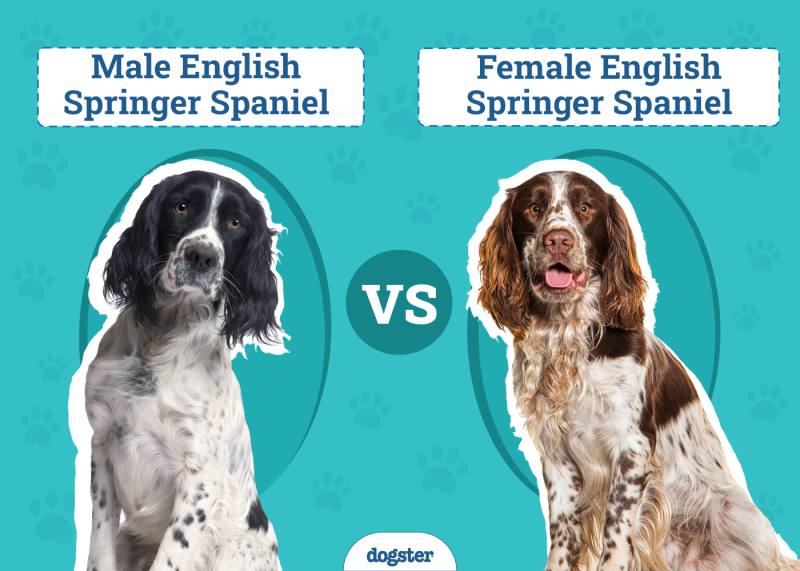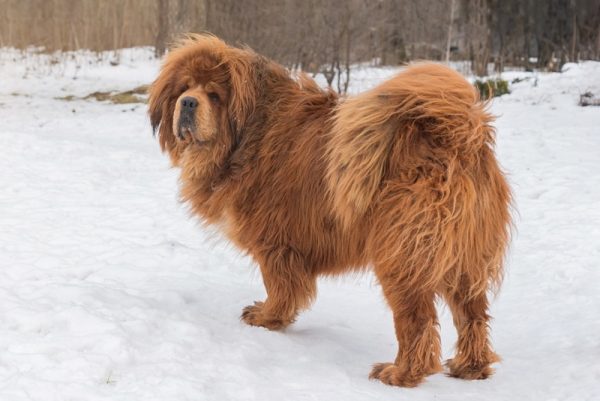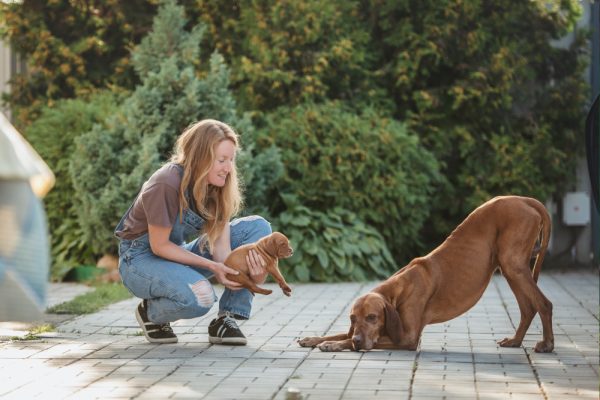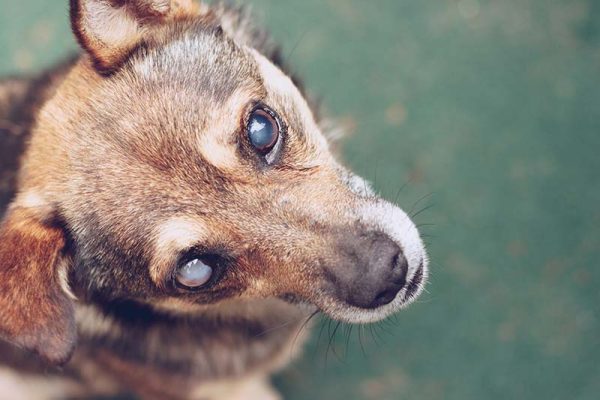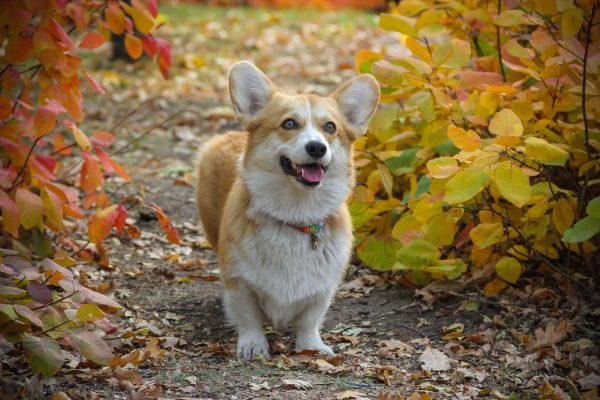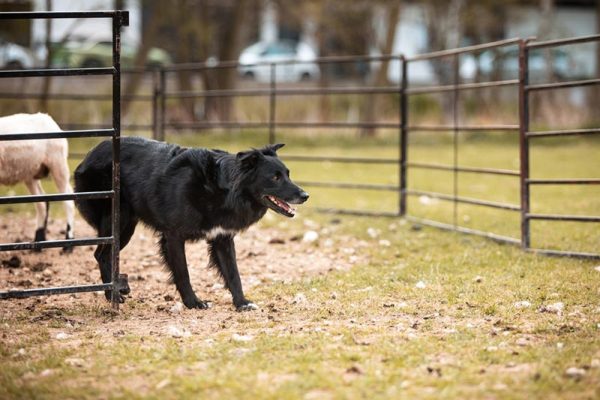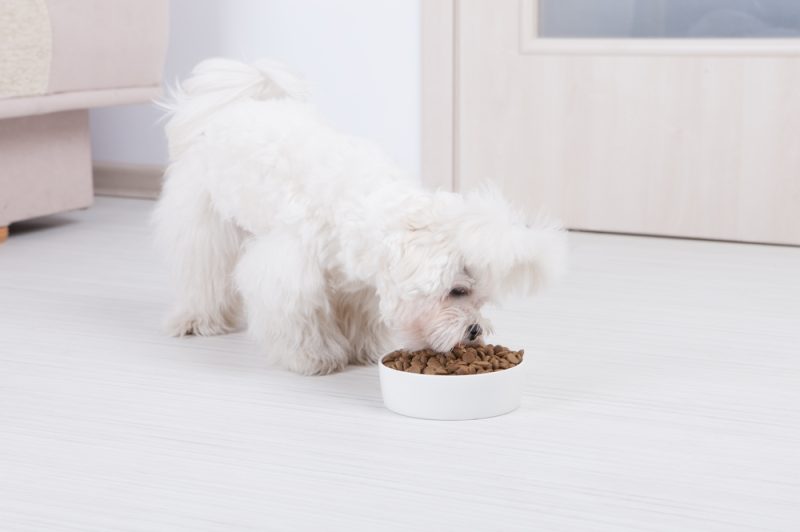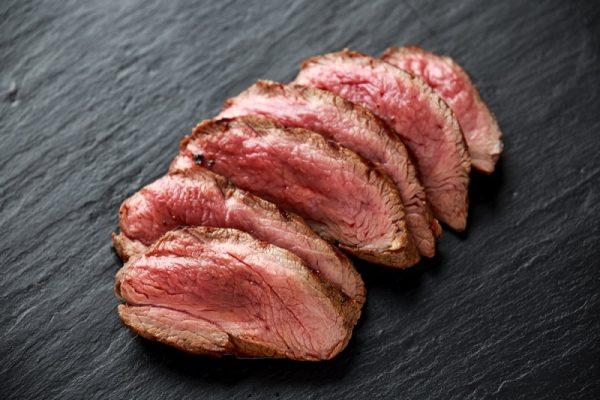In this article
View 8 More +If you’re in search of a loyal, intelligent, and strikingly beautiful companion, look no further than the Rhodesian Ridgeback Beagle. This unique hybrid breed combines the best qualities of the Rhodesian Ridgeback and the Beagle, resulting in a dog that is as charming as it is intelligent.
With their distinctive ridge of hair on their back and their friendly, outgoing nature, Rhodesian Ridgeback Beagles have captured the hearts of dog lovers around the world.
Still curious about the Rhodesian Ridgeback Beagle? Read on as we discuss this mixed breed’s characteristics, history, and everything you need to know about owning a Rhodesian Ridgeback Beagle!
Breed Overview
Height:
15–25 inches
Weight:
26–60 pounds
Lifespan:
10–13 years
Colors:
Black, brown, fawn, tan, white
Suitable for:
Active families or individuals who are experienced dog owners
Temperament:
Friendly, loyal, affectionate, protective
The Rhodesian Ridgeback Beagle is a hybrid breed that blends the traits of its parent breeds: the Rhodesian Ridgeback and the Beagle. The Rhodesian Ridgeback is a large and muscular breed originally from Southern Africa, bred for hunting and guarding. Beagles, on the other hand, are smaller scent hounds known for their excellent tracking abilities and friendly nature. By combining these two breeds, the Rhodesian Ridgeback Beagle inherits the best qualities of both!
As a mixed breed, the Rhodesian Ridgeback Beagle is not a recognized breed by major kennel clubs, but its popularity has still been steadily growing. However, it’s important to note that the breeding of hybrid dogs like the Rhodesian Ridgeback Beagle can be a source of controversy. Critics argue that the lack of breed standards and responsible breeding practices can result in unpredictable traits and health issues. Therefore, it is crucial to ensure that you find a reputable breeder who prioritizes the health and well-being of their dogs.
Rhodesian Ridgeback Beagle Characteristics
Rhodesian Ridgeback Beagle Breed Puppies
Rhodesian Ridgeback Beagle breeders are uncommon given the fact that the Rhodesian Ridgeback parent is also uncommon. When looking to add a Rhodesian Ridgeback Beagle puppy to your family, it’s essential to do thorough research and find a reputable breeder. Look for breeders who prioritize the health and temperament of their dogs and visit their facilities to ensure proper care and socialization.
Life with Rhodesian Ridgeback Beagle puppies is a joyous and rewarding experience. They are energetic, playful, and highly sociable. These puppies thrive in an environment where they receive plenty of mental and physical stimulation.
Be prepared to invest time into their training and socialization, as early experiences will shape their behavior and temperament as adults. With proper care and attention, your Rhodesian Ridgeback Beagle puppy will grow into a well-rounded and loving companion.


Temperament & Intelligence of the Rhodesian Ridgeback Beagle 🧠
One of the most appealing qualities of the Rhodesian Ridgeback Beagle is their temperament. These dogs are known for their friendly, affectionate, and gentle nature. They are excellent family dogs, displaying patience and love towards children. Rhodesian Ridgeback Beagles are also highly intelligent and eager to please, making them relatively easy to train.
The intelligence of the Rhodesian Ridgeback Beagle is a product of the combination of the Rhodesian Ridgeback’s independent thinking and the Beagle’s keen scenting abilities. This makes them quick learners, but it also means they may have a stubborn streak at times. Consistency, positive reinforcement, and patience are key when training this breed.
Are These Dogs Good for Families?🏡
Absolutely! Rhodesian Ridgeback Beagles are great family dogs. They have a strong bond with their human pack and thrive on love and attention. These dogs are incredibly gentle and patient with children, making them an excellent choice for families with kids. However, as with any dog breed, supervision is important to ensure interactions between dogs and children are safe and positive.
Does This Breed Get Along with Other Pets?
With proper socialization and training, Rhodesian Ridgeback Beagles can get along well with other pets. However, it’s important to note that both the Rhodesian Ridgeback and the Beagle parent breeds have strong prey drives due to their hunting background, so introductions should be done carefully and under controlled circumstances. Early socialization with other animals and consistent training will increase the likelihood of successful cohabitation with other pets.

Things to Know When Owning a Rhodesian Ridgeback Beagle:
Food & Diet Requirements
The nutritional needs of Rhodesian Ridgeback Beagles are similar to those of other medium-sized breeds. A balanced diet consisting of high-quality dog food is essential to maintain their overall health and well-being. Feeding guidelines provided by the breeder or veterinarian should be followed, taking into consideration the dog’s age, activity level, and any specific dietary requirements or restrictions.
It’s important to monitor your Rhodesian Ridgeback Beagle’s weight and adjust their food intake accordingly to prevent obesity, which can lead to various health issues. Additionally, always ensure that fresh water is available at all times.
Exercise
Rhodesian Ridgeback Beagles are active dogs that require regular exercise to keep them happy and healthy. Aim for at least 1 hour of physical activity per day, which can include walks, jogs, playtime in a securely fenced yard, or engaging in dog sports such as agility or scent work. Mental stimulation is also important, as these dogs thrive when given tasks to fulfill their intelligent and inquisitive nature.
Training
Training a Rhodesian Ridgeback Beagle should be approached with patience, consistency, and positive reinforcement methods. These dogs respond well to praise, treats, and rewards, so incorporating these into your training sessions will yield excellent results. Early socialization is crucial to ensure they develop good manners and grow into well-adjusted adult dogs.
Professional obedience classes or working with a reputable dog trainer can be beneficial for both you and your Rhodesian Ridgeback Beagle. They will help you navigate the training process and address any specific challenges that may arise.
Grooming✂️
The grooming needs of Rhodesian Ridgeback Beagles are relatively low maintenance. Like their parent breeds, they have short, dense coats that require regular brushing to remove loose hairs and keep their coat in good condition. Bathing should be done as needed, typically every 2 to 3 months, unless they get particularly dirty or smelly.
Additionally, regular nail trims, ear cleaning, and dental care should be included in their grooming routine. Checking their ears for signs of infection and brushing their teeth regularly will help maintain their overall health and prevent any potential issues.
Health and Conditions
As with any dog breed, Rhodesian Ridgeback Beagles are prone to certain health conditions. While hybrid vigor may reduce the risk of inheriting some breed-specific problems, it’s essential to be aware of potential health issues that may affect this mix. Regular veterinary check-ups and open communication with your breeder are vital to ensure the well-being of your dog.
Serious conditions that may affect Rhodesian Ridgeback Beagles include hip dysplasia, progressive retinal atrophy (PRA), and degenerative myelopathy. These conditions can impact their mobility and quality of life, so it’s important to screen the parent dogs for these conditions before breeding.
Minor conditions that may be seen in Rhodesian Ridgeback Beagles include allergies, ear infections, and obesity. Regular grooming, proper nutrition, and preventive care can help minimize the risk of these issues.
- Allergies
- Ear Infections
- Obesity
- Hip Dysplasia
- Progressive Retinal Atrophy
- Degenerative Myelopathy

Male vs Female
When considering the gender of your Rhodesian Ridgeback Beagle, it’s important to note that individual personalities and temperaments can vary more than generalizations based on gender. However, some breed enthusiasts suggest that male Rhodesian Ridgeback Beagles may be more independent and stubborn, while females tend to be more affectionate and nurturing. Ultimately, it’s crucial to choose a dog that fits your lifestyle and preferences rather than solely basing your decision on gender.
3 Little-Known Facts About the Rhodesian Ridgeback Beagle
1. This Mixed Breed Has a High Prey Drive
The Rhodesian Ridgeback Beagle inherits its high prey drive from its parent breeds, both of which have a rich hunting background. The Rhodesian Ridgeback was originally bred in Africa for big game hunting, where they demonstrated their bravery and ability to track and hold down lions. Their innate instinct to pursue and capture prey is deeply ingrained in their genetic makeup. Similarly, the Beagle has a long history as a scent hound bred for tracking small game, such as rabbits. Their exceptional sense of smell and determination to follow scent trails make them relentless hunters. The combination of these hunting instincts results in the Rhodesian Ridgeback Beagle’s strong prey drive, making them instinctively inclined to chase and capture small animals or scents.
2. The Rhodesian Ridgeback Beagle Is a Rare Breed
The Rhodesian Ridgeback Beagle is a rare mix-breed, combining two distinct and recognized parent breeds. The Rhodesian Ridgeback, in itself, is a relatively rare purebred. The breed’s rarity is partly due to the fact that the original breeding stock was carefully guarded and maintained by a small group of dedicated enthusiasts. This exclusivity carries over to the Rhodesian Ridgeback Beagle mix, as it is not a widely available or commonly bred hybrid. Finding a reputable breeder who specializes in this particular mix may require some research and patience.
3. They Are a Versatile and Athletic Dog Breed
The Rhodesian Ridgeback Beagle is undeniably an athletic breed. Both parent breeds contribute to their physical prowess and stamina. Regular exercise and engaging activities are essential to keep this breed mentally and physically stimulated. Whether it’s going for long walks, participating in canine sports, or simply playing fetch, providing outlets for their athletic abilities is crucial to their overall well-being.

Final Thoughts
The Rhodesian Ridgeback Beagle is a delightful mix of beauty and brains, offering a unique blend of characteristics from the Rhodesian Ridgeback and Beagle parent breeds. With their friendly nature, intelligence, and striking appearance, they make excellent family pets for those willing to provide them with love, exercise, and mental stimulation. However, it’s crucial to find a reputable breeder, prioritize proper socialization and training, and stay proactive in their healthcare. If you’re seeking a loyal and loving companion that will keep you on your toes, the Rhodesian Ridgeback Beagle might just be the perfect match for you.
See Also:
- Rhodesian Husky Mix: Pictures, Care Guide, Temperament, & Traits
- Rhodesian German Mix: Pictures, Care Guide, Temperament & Traits
Featured Image Credit: spmg, Shutterstock




